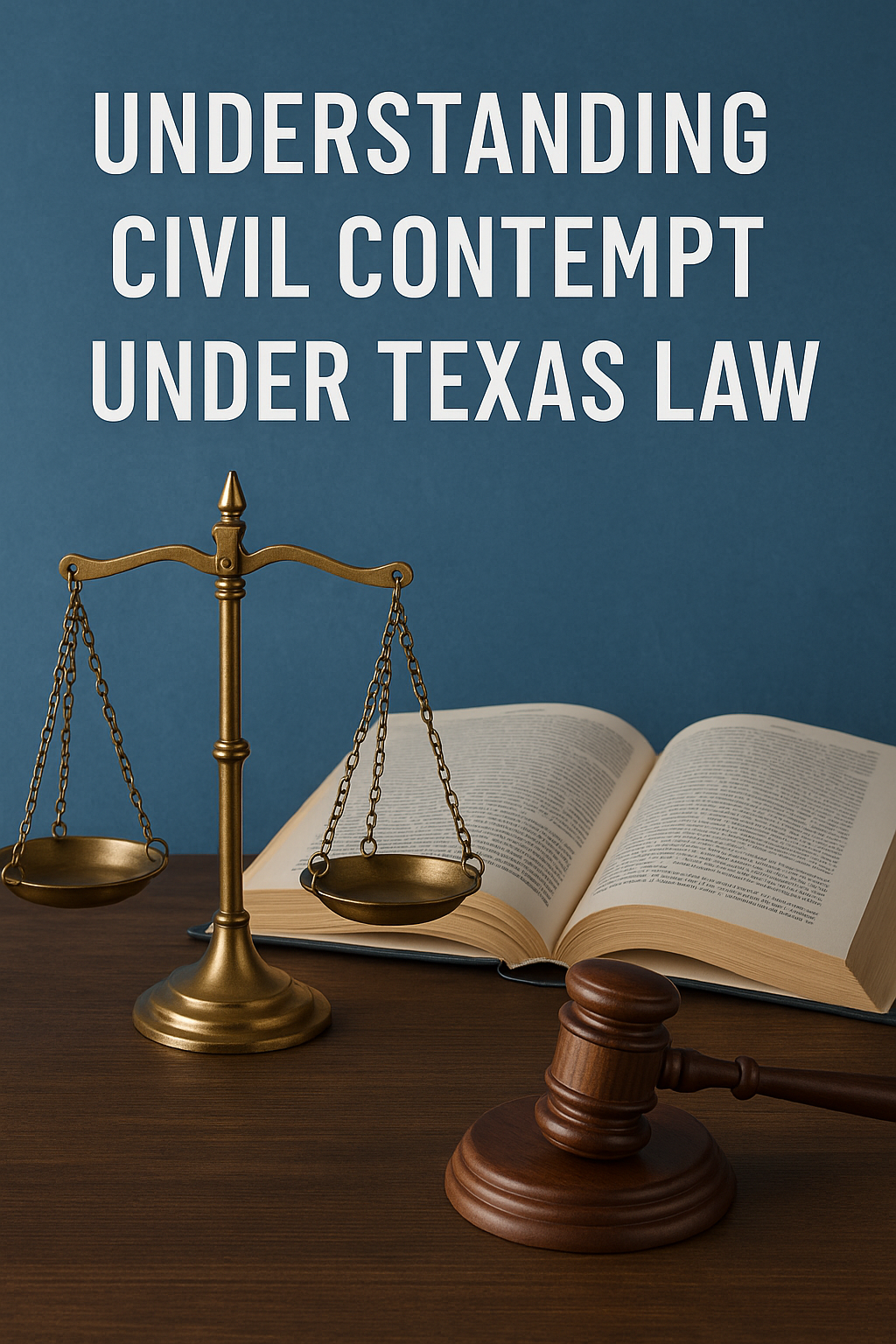
Civil contempt is one of the more complex areas of Texas law, balancing the authority of the courts with the rights of individuals. It arises when a party fails to comply with a court order, and the court uses its contempt power to compel compliance. While the term “contempt” often carries a punitive connotation, civil contempt in Texas serves a distinct and primarily remedial purpose.
What Is Civil Contempt?
Civil contempt occurs when a person disobeys a lawful court order, not as an affront to the dignity of the court, but in a way that hinders the rights of another party. Unlike criminal contempt—which punishes past acts that offend the authority of the court—civil contempt is designed to coerce compliance or remedy harm caused by noncompliance.
In short:
● Civil contempt = coercive/remedial (intended to make someone comply).
● Criminal contempt = punitive (intended to punish).
For example, if a court orders child support payments and the obligor fails to pay, the court may hold that person in civil contempt until they comply by paying what is owed.
Key Features of Civil Contempt in Texas
- Conditional in Nature
The hallmark of civil contempt is that the contemnor “holds the keys to the jailhouse door.” In other words, they can end their contempt by complying with the court’s order. - Clear and Specific Court Order Requirement
Civil contempt can only arise from disobedience of a clear, specific, and unambiguous court order. Vague or general directives cannot serve as the basis for contempt. Texas appellate courts regularly overturn contempt findings where orders lack specificity. - Burden of Proof
The moving party must establish that the alleged contemnor had actual knowledge of the order and willfully failed to comply. - Enforcement Tools
Remedies may include fines, jail time, or both, but only to the extent necessary to coerce compliance or compensate for losses. - Due Process Protections
Although civil contempt is not criminal, procedural protections still apply. The accused must be given notice, an opportunity to be heard, and a fair hearing before sanctions are imposed.
Common Contexts for Civil Contempt in Texas
● Family Law: Enforcement of child support, visitation orders, or property division.
● Discovery Disputes: Failure to comply with discovery requests or court-ordered disclosures.
● Injunctions: Disregarding injunctions or restraining orders issued by the court.
Practical Considerations
Attorneys and litigants must remember that civil contempt is not automatic. Courts exercise this power cautiously, and appellate courts carefully review contempt findings for strict compliance with procedural requirements. Anyone facing contempt proceedings should consult with counsel to evaluate defenses, such as ambiguity in the order, lack of notice, or inability (as opposed to unwillingness) to comply.
Conclusion
Civil contempt under Texas law is a powerful but carefully limited tool to enforce compliance with court orders. It is not about punishment, but about ensuring fairness and protecting the rights of parties who rely on the courts for relief. Understanding its definition, purpose, and limitations is essential for both practitioners and litigants navigating Texas’s civil justice system.
At David C. Barsalou, Attorney at Law, PLLC, we help clients navigate business, family, tax, estate planning, and real estate matters ranging from document drafting to litigation with clarity and confidence. If you’d like guidance on your situation, schedule a consultation today. Call us at (713) 397-4678, email barsalou.law@gmail.com, or reach us through our Contact Page. We’re here to help you take the next step.